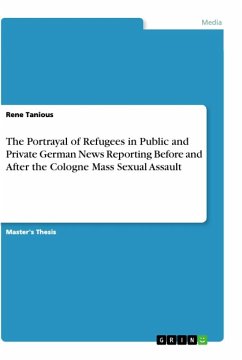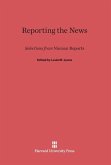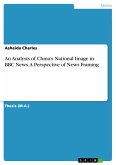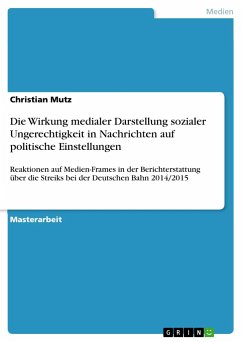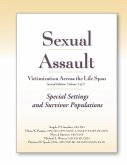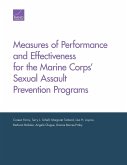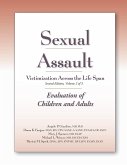Master's Thesis from the year 2016 in the subject Communications - Movies and Television, grade: 12, University of Copenhagen, language: English, abstract: Taking framing and agenda-setting as theoretical approaches, the present study analyzed the portrayal of refugees in German news reporting before and after the Cologne mass sexual assault on New Year's Eve 2015. Comparing the two largest public (ARD and ZDF) and private (RTL and Sat1) TV broadcasters, the results indicated that the incident had an immediate impact on the news reporting of all channels, but not in the long term. The problem/threat frame peaked in January 2016 for all channels.Overall, private channels showed a stronger tendency to emotionalize the news and portray refugees negatively. Especially RTL strongly changed its portrayal of refugees after the incident. The political frame was most popular for all channels after the incident, but much stronger so for public channels. The number of articles published peaked for public as well as private channels in the month following the incident. Public opinion data indicated that the popularity of the German right-wing party AfD has increased to an all time high since the beginning of the refugee debate in the media. The Cologne mass sexual assault did however not have an immediate impact. It is argued that the effect is cumulative rather than a short-term immediate reaction to specific events.

